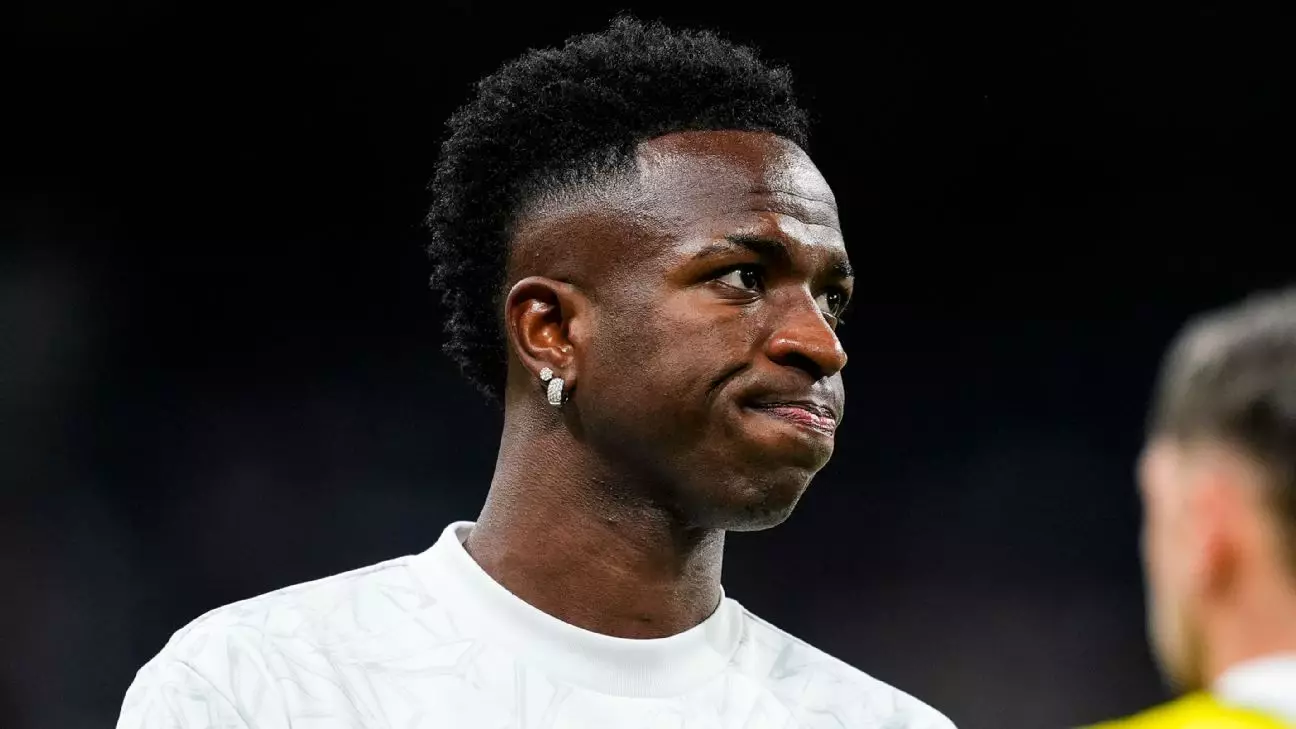In a surprising move, Vinícius Júnior and several of his Real Madrid teammates have opted not to attend the prestigious Ballon d’Or ceremony in Paris. This decision, reportedly rooted in the belief that Manchester City’s Rodri is poised to take home the award, reflects a broader sentiment among Madrid players who feel Vinícius deserves the accolade. The Brazilian winger, who played a pivotal role in securing both La Liga and the UEFA Champions League titles for Real Madrid last season, has become a polarizing figure in this competitive landscape.
At just 24, Vinícius Júnior has emerged as one of football’s brightest talents, having scored an impressive 15 goals in La Liga and six in the Champions League last season. His performances were marked by crucial moments, including goals during semi-final and final matches, which proved instrumental in Real Madrid’s triumphs. Given this strong case for recognition, the absence from the Ballon d’Or ceremony in protest against what some insiders are calling a “historic robbery” speaks volumes about the perceived injustice surrounding this year’s award.
The frustrations articulated by sources within Real Madrid highlight the discontent surrounding the nomination process and the eventual selections being made. The feeling that Vinícius would have been a worthy recipient – potentially being the first Brazilian to claim the title since Kaká in 2007 – underscores a growing narrative about recognition and merit in sports awards.
The impacts of Vinícius’s absence extend beyond personal disappointment; it shines a light on the broader dynamics of player recognition in global football. Figures like Ancelotti have openly championed Vinícius’s candidacy, projecting optimism about his chances. While sentiment around the award typically blend analysis and conjecture, the undercurrent of protest from players can suggest a shift in how stars assert their relevance and worth in the game.
Moreover, the success of Rodri, who played an instrumental role in both winning the Premier League title with his club and leading Spain to victory at Euro 2024, complicates the narrative further. While his contributions are commendable, they prompt questions regarding what criteria truly define greatness in the context of such prestigious awards. This tension raises important discussions about sportsmanship, recognition, and the delicate balance between league contributions and international competitions.
As the football community processes this year’s Ballon d’Or nominees and potential winners, Vinícius Júnior’s decision not to attend serves as a reminder of the complexities surrounding athlete recognition. The essence of these awards should not merely dwell on statistics or titles, but reflect an appreciation for individual talent and the narratives that accompany their journeys. In boycotting the ceremony, Vinícius and his teammates may be signaling a push for greater transparency and fairness in the selection process, urging all to reflect on the true meaning of achievement within the world of football.

Leave a Reply